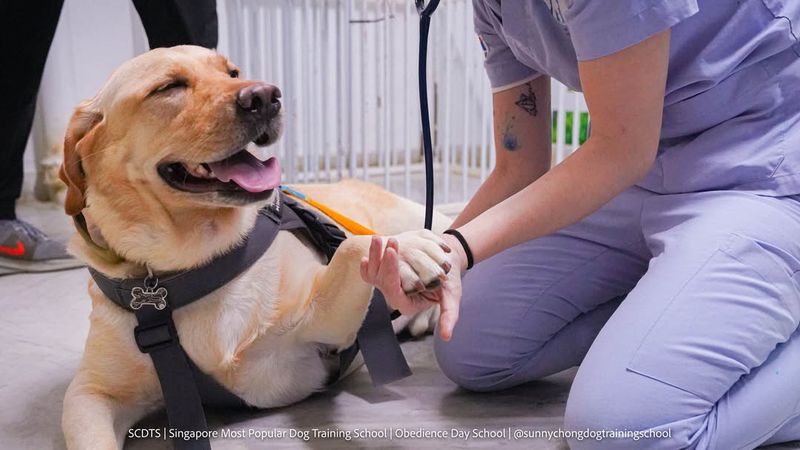9 Reasons Why Getting Purebred Dogs Might Be Unethical

Purebred dogs are often favored for their predictable traits and lineage, but there are significant ethical concerns associated with their breeding and acquisition. In this list, we’ll explore compelling reasons why the pursuit of purebred dogs can be problematic.
From health issues to the impact on animal shelters, these factors shed light on the less-discussed aspects of purebred dog ownership, encouraging potential owners to consider more ethical alternatives like adoption.
1. Health Complications

Many purebred dogs suffer from a range of genetic disorders due to the closed gene pools they are bred within. Breeders often select for specific physical traits that adhere to breed standards, which can exacerbate hereditary health problems.
For instance, bulldogs are known for their adorable squished faces, but this trait often comes with severe respiratory issues. Similarly, German Shepherds are prone to hip dysplasia due to selective breeding practices.
When a breed’s aesthetic characteristics are prioritized, it can lead to compromised health and a lower quality of life for the animal. These health complications not only affect the dogs but can also result in significant veterinary costs for their owners.
Potential dog owners should be aware of these issues and consider adopting mixed-breed dogs, which are generally healthier and less likely to suffer from these inherited problems.
2. Overpopulation In Shelters

Animal shelters are overwhelmed with dogs needing homes, many of whom are mixed breeds. The desire for purebred dogs often overshadows the plight of these homeless animals, leading to higher euthanasia rates in shelters. Every purebred dog purchased from a breeder represents a potential home lost for a shelter dog.
Adopting from shelters not only provides a home for an animal in need but also helps to alleviate the overpopulation crisis. Shelter dogs come in all shapes, sizes, and temperaments, often making them more adaptable to different family situations.
Choosing to adopt rather than buy promotes a more ethical approach to dog ownership and helps reduce the strain on animal shelters, ultimately saving lives in the process.
3. Inbreeding Concerns

Inbreeding is a common practice in the purebred dog industry, aiming to maintain specific breed characteristics. However, this results in a limited gene pool, increasing the likelihood of genetic disorders and health issues.
Dogs that are closely related genetically are more susceptible to inherited conditions, which can severely impact their well-being.
The practice of inbreeding prioritizes appearance over health, with many breeds suffering from debilitating conditions as a result. For potential dog owners, understanding the consequences of supporting inbreeding can lead to more informed and ethical decisions.
Considering mixed-breed dogs or those from ethical breeders who emphasize genetic diversity can help mitigate these issues, providing healthier and happier pets.
4. Commercial Breeding Practices

Commercial dog breeding practices, especially those in puppy mills, prioritize profit over the well-being of dogs. These facilities often subject dogs to poor living conditions, with minimal social interaction, medical care, and exercise. The primary focus is on producing as many puppies as possible, often without regard for the health or temperament of the animals involved.
Puppies from such environments can suffer from a range of health and behavioral issues due to inadequate care and socialization. Prospective dog owners should be cautious and ensure they are not inadvertently supporting these unethical practices.
Choosing to adopt or purchase from responsible breeders who provide humane and healthy environments for their dogs is crucial in combating the prevalence of commercial breeding and improving the overall welfare of dogs.
5. Breed Standards And Suffering

Breed standards are established to maintain the distinct characteristics of each purebred dog. However, these standards can lead to physical and psychological suffering for the dogs involved. For example, breeds like the Dachshund are bred for elongated bodies, which can cause severe spinal issues.
The pressure to meet these standards often results in selective breeding practices that ignore the health and well-being of the dogs. This focus on aesthetics over function can lead to breeds that struggle with basic activities, like breathing and walking.
Potential dog owners should critically evaluate the impact of breed standards and consider the long-term health and happiness of their pets above the desire for specific physical traits. Opting for mixed breeds or dogs from ethical sources can help avoid supporting this cycle of suffering.
6. Financial Implications Of Purebreds

Owning a purebred dog often comes with significant financial implications. Due to their predisposition to genetic disorders, purebred dogs may require frequent veterinary care, leading to substantial medical expenses.
Additionally, the initial cost of purchasing a purebred dog from a breeder can be quite high compared to adopting from a shelter. Prospective dog owners should consider whether these financial commitments align with their long-term capabilities and responsibilities.
Choosing adoption or supporting breeders who prioritize health over appearance can reduce potential financial burdens and contribute to more sustainable and ethical pet ownership practices.
7. Behavioral Issues

Purebred dogs, especially those from commercial breeding facilities, may exhibit behavioral issues due to inadequate socialization and stimulation. These dogs are often raised in environments that do not cater to their developmental needs, leading to problems such as anxiety, aggression, and destructiveness.
Addressing these behavioral issues requires time, patience, and resources, which can be challenging for some owners. Understanding the importance of early socialization and mental enrichment can prevent these problems and improve the overall well-being of the dog.
Adopting from shelters, where dogs receive socialization and care, or buying from responsible breeders who emphasize temperament, can lead to more well-adjusted pets, enhancing the human-animal bond.
8. Cultural And Social Influences

Social and cultural influences often drive the demand for purebred dogs. Media portrayals and societal trends can create a perception that owning a purebred dog is more desirable or prestigious, overshadowing the value of adopting mixed-breed dogs.
These influences can lead to impulsive decisions that do not consider the long-term welfare of the pet or the ethical implications of supporting certain breeding practices. It’s vital for potential dog owners to reflect on their motivations and consider how societal pressures might be affecting their choices.
Promoting the adoption of mixed-breeds and highlighting their benefits can challenge these cultural norms, encouraging more inclusive and ethical dog ownership practices.
9. Adoption As An Ethical Choice

Adopting a dog from a shelter is not only an ethical choice but also a rewarding one. Shelters are filled with dogs of all ages, sizes, and breeds, waiting for loving homes. By choosing adoption, individuals can provide a second chance to an animal in need and help combat the overpopulation crisis in shelters.
Adopted dogs often form deep bonds with their owners, as they seem to appreciate the love and care they receive. This choice aligns with a more compassionate approach to pet ownership, considering the broader impact on animals and society.
By opting for adoption, potential dog owners can enjoy the companionship of a pet while contributing positively to animal welfare. This decision helps reduce demand for unethical breeding practices and promotes a more humane society.






